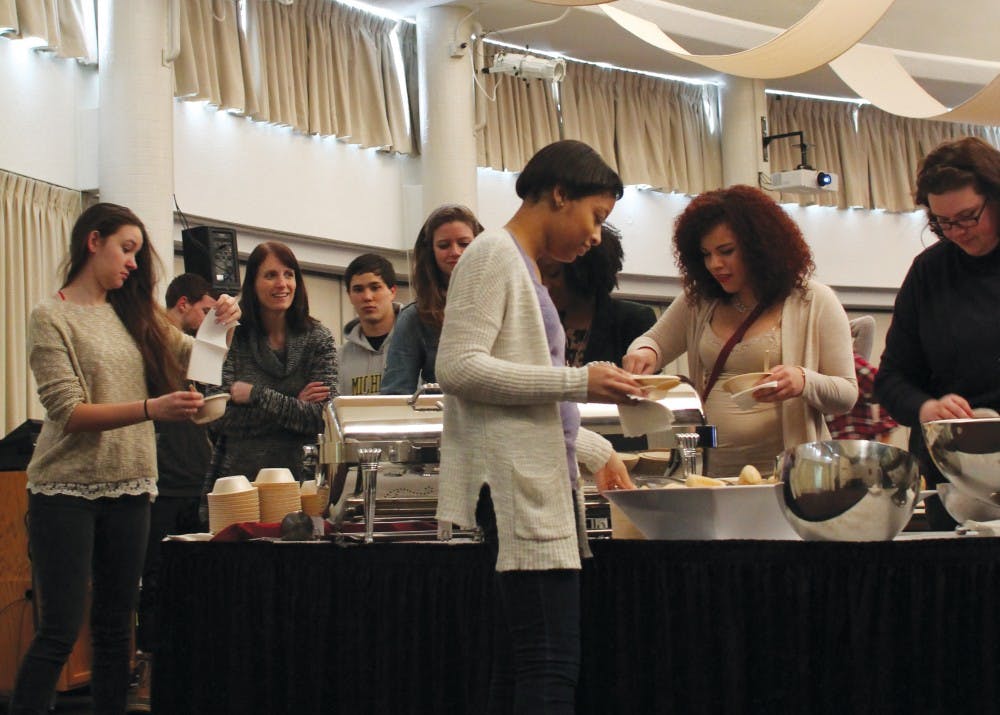Living in a Dream World
Panelists and audience discuss how America does not exist in a post-racial society as claimed

A demand for the right to life, liberty and the pursuit of happiness echoed through America 47 years ago and is still paving a path to equality.
An audience of 50 students filled the Bovee University Center Rotunda Thursday to discuss the belief that America exists as a post-racial society. The event, "Living in a Dream World," was held as a part of Central Michigan University's Martin Luther King Jr. week.
"It was shocking when they said that there are more black or African-American men incarcerated than there were in slavery before the Civil War," said Detroit senior Kelsey McKoy.
 Before the panel discussion, a documentary called "White like Me" showed America's reaction after President Barack Obama's first election in 2008. Politicians, newspapers and broadcasters proclaimed racism was over and America was a post-racial society.
Before the panel discussion, a documentary called "White like Me" showed America's reaction after President Barack Obama's first election in 2008. Politicians, newspapers and broadcasters proclaimed racism was over and America was a post-racial society.
"Racism 60 years ago doesn't look like racism now," said panelist Amber Johnson, assistant director of Multicultural Academic Student Services. "Racism can be embedded in policy and (political) structure."
The documentary challenged the belief in post-racism with facts concerning today's racial disparity in wealth, healthcare, housing, education and incarceration rates. According to panelist and junior Portia Brown, "post-racial" is a political assertion, not reality.
"People were saying 'Everything is okay, we have rights and a black president,'" said Milwaukee junior Leah Townsend. "That was really surprising to me. It seems we have come so far, but we still have so far to go."
Johnson and other panelists brought up issues like education, health reform and affirmative action. They discussed how affirmative action has both good and bad effects on minority groups.
"(People) don't understand what affirmative action is," Johnson said. "Nor do they understand the population of people who are hurt by affirmative action."
The audience participated by explaining why they thought people believe America is a post-racial society, their thoughts on affirmative action and why some might feel threatened.
"I think there has been progress made," McKoy said. "People are saying it's time for change. I think that there's still pinnacles that we can reach."




